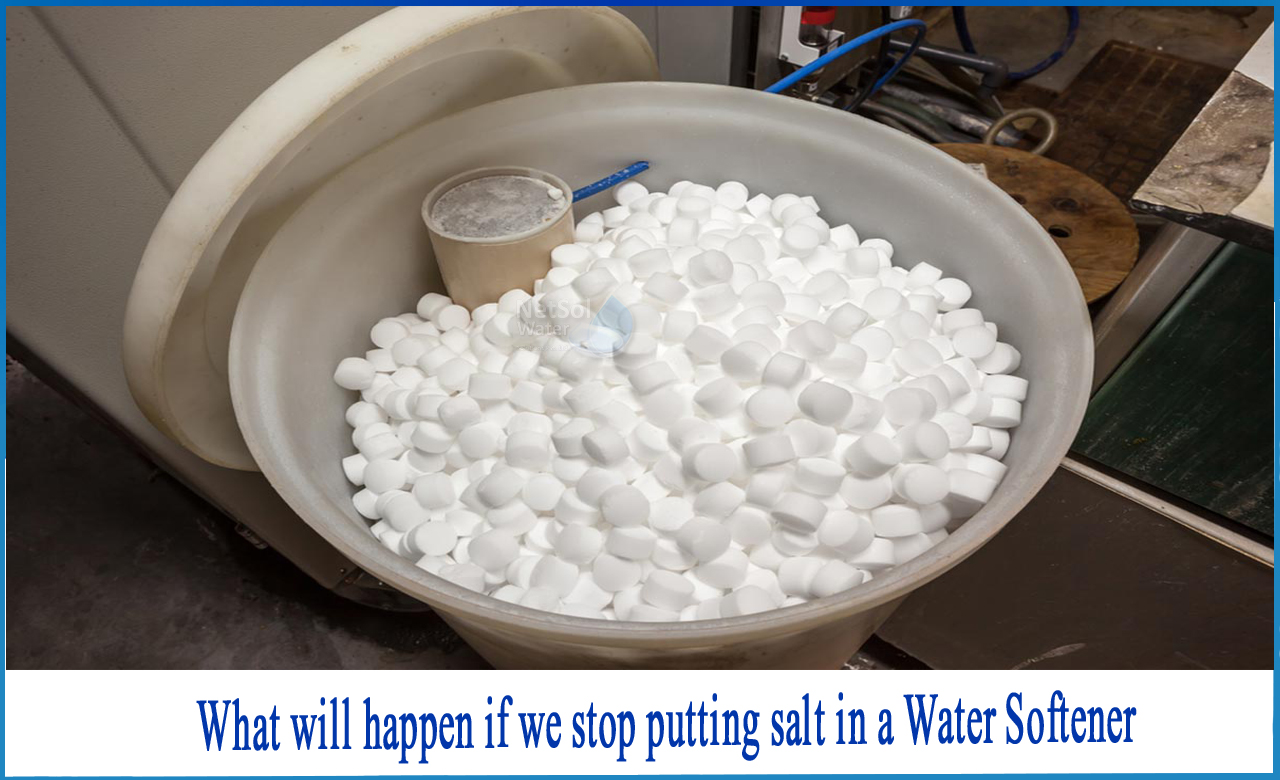What will happen if we stop putting salt in a Water Softener?
When you take a glassware out of the dishwasher, have you ever noticed foggy marks on it?
If yes, then you're probably aware of the negative effects of hard water. Water softening salts are required to treat water and to keep water softeners operating at peak efficiency. When your water softener runs out of salt, it can destroy the water fixtures and create long-term damage. It may even cause your tank to overflow.
Although this is the most prevalent application, water softening salts are utilized in a variety of settings, ranging from homes to businesses. When the salt in the water softener runs out, the outcome can be a low-quality water with undesirable side effects.
What is a Water Softener?
A filtering system in instrumental form is a water softener. It softens water by eliminating excessive calcium and magnesium mineral concentrations that produce the hard water. It uses an ion exchange mechanism to soften the water. A whole-house water softening system or an industrial water softening filtration system from Netsol can be employed for your needs.
The use of a water softener solves a frequent problem: hard water. Now, what is the definition of hard water?
Hard water
Hard water has a high concentration of calcium and magnesium ions, which build up in your pipes and reduce the longevity of household goods like dishwashers and coffee makers.
Why are Sodium and Chloride ions used in Water Softeners?
Years ago, the development of Ion Exchange Resin Method greatly aided in the improvement of water quality. It enables the ion exchange, which involves removing dissolved ions from the solution and exchanging them with other ions. Every water softening equipment in today's industrial facilities is also an ion exchanger.
If you're wondering why sodium (Na) and chloride (CI) ions are used in water softeners, it's because they replace the calcium (Ca) and magnesium (Mg) ions that create hardness in water.
What happens when water softener is out of salt?
If you're curious ab?out what happens when your water softener runs out of salt, keep an eye out for the following signs:
1: Your soap does not lather up when you shower, leaving a residue on your skin and on the showerhead.
2: Calcium and magnesium minerals harden in your pipes, causing your water heating system to lose effectiveness.
3: A white crust can be formed around the showerhead and sink, causing the water to spray in all directions.
4: The white spots on glass shower doors might be difficult to remove. Even if you clean these spots, they will not be as clean as they were previously. As a result, you'll have to replace the whole system, which will be more expensive than replacing the salt in your water softener.
5: Water softener tanks can overflow, which is more likely with non-electronic water softeners.
Conclusion
Water softening salts are used in both home and industrial settings. Every day, the amount of water on the planet decreases. As a result, businesses began looking for ways to reuse wastewater. Water purification can help you avoid wasting too much water. In the water purification process, salt is a necessary component.
Choose the best solution for your problem!
Call Netsol Water if you're ready to get rid of the stains and make your home's water supply cleaner and healthier! Our services include the greatest water and wastewater treatment, as well as a variety of useful after-sales services. Our professionals will check the customer's location first, then explain the available options and thus allow you to select what is best for your property. You can always find useful information by liking and following us on YouTube and LinkedIn.



